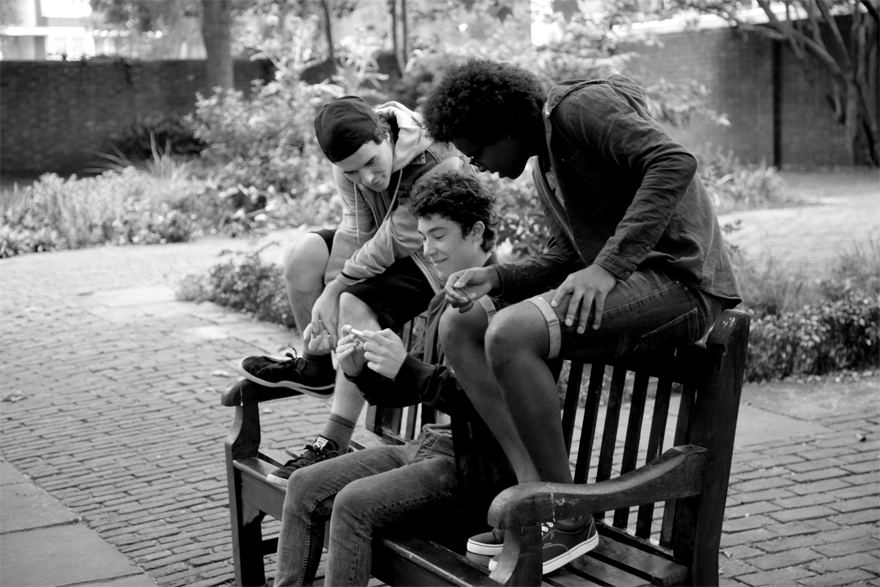Can short-term volunteering have an impact?
We explore how a new short-term role has impacted young volunteers as well as the e-learning we produce.
It has always been clear that for any youth orientated product or service to succeed, there needs to be meaningful engagement with young people in its creation. As with any project at The Mix, we invested a lot of time at the start of our digital badging project to gather young people’s views through workshops. The insights we gathered were a key part of our decision to develop a problem-solving badge. To earn a badge young people would have to complete an e-learning course and a quiz.
To ensure that this e-learning course was developed to meet the needs of young people, we created a new volunteering opportunity aimed at this demographic to test both the functionality and content of the course. We spoke with our volunteers to find out more about their experiences as e-learning beta-tester volunteers.
What made you want to become an e-learning tester?
This was an incredibly popular opportunity; we received more applications than our more traditional volunteering roles. It was clear that this role stood out for young people because of the flexibility of the role and the chance to make a positive impact on their community:
“It was different to any volunteering role I have done before as it could be completed at home.”
“I liked that it was for testing something aimed at people of my age group.”
“I liked the sound of the charity (and its role in helping young people).”
“It sounded like an interesting role and was something that I could do from home.”
Developing and drawing out skills in volunteers
Ensuring that opportunities benefit both the organisation and the volunteer is important in engaging and retaining volunteers. As this project focuses on improving the employability skills of young people we wanted to develop and highlight our volunteers’ professional skillsets.
The role gave the volunteers chances to develop skills that aren’t always easy to attain through more traditional opportunities. For example, giving feedback in a professional setting is an important skill that is transferrable across a wide range of professions. In most cases feedback is given from organisations to volunteers and when it is the other way round, this is often done anonymously through surveys rather than directly on a product.
Our volunteers were clear that skill development was important to them when volunteering:
“I thought it might be something interesting to do while picking up some tips along the way.”
“Being able to give feedback is a vital part of any role as is testing new things, so I think that is beneficial.”
“I feel that this role helps enhance my reviewing and writing skills which are both very important in the work place, but also to improve my understanding of a various range of topics which would help me in the work place, to further improve my confidence and self-belief.”
Will volunteering help with employment chances?
Since a third of the volunteers’ surveyed were classified as NEETs (Not in Education, Employment or Training), it was interesting to hear their thoughts on how they felt they developed both personally and professionally through volunteering:
“The content of the modules is also very beneficial, in particular the modules about problem-solving. I have personally learnt some new information and techniques while completing the modules during the e-testing.”
“I feel I have strengthened my critiquing skills through looking into areas of the course that could be improved on.”
“My self-confidence has improved as a result of this volunteering role.”
It has been an overwhelmingly positive experience seeing the impact of this volunteer role on both the final product we have delivered as well as the young people themselves. Over 80% of e-learning beta testers felt that they had developed or gained new skills whilst 100% reported that their problem solving skills were improved as a result of completing the course.
Want to get involved?
Why not sign up to take our problem-solving course to earn a digital badge. We are in the process of developing new courses and we would love to have them tested by as many people as possible before they launch. If you are 16-25 you can apply to be an e-learning tester here.
By
Published on 12-Aug-2016
No featured article















